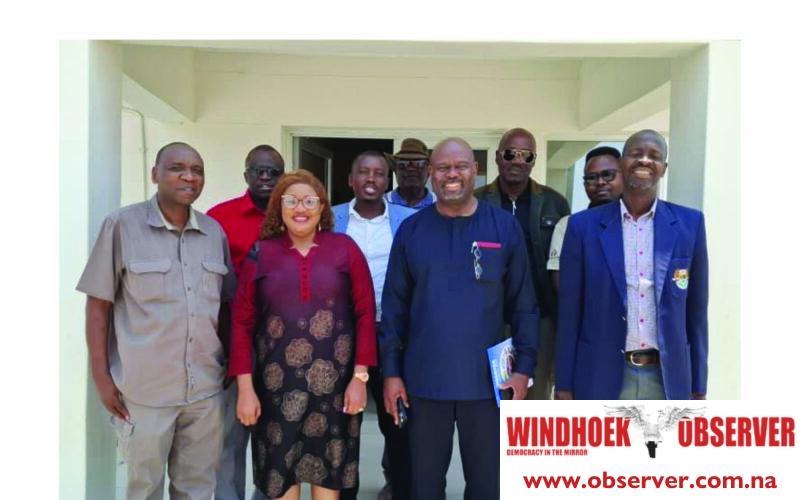Allexer Namundjembo
The Meat Corporation of Namibia (Meatco) has created 142 permanent jobs at the Rundu Abattoir since its reopening in August 2023.
This was revealed by Meatco’s interim chief executive officer, Albertus Aochamub, during a recent visit to the Kavango East and West regions where he met with with governors Hamunyera Hambyuka of Kavango East and Verna Sinimbo of Kavango West.
The meetings aimed to build partnerships and explore ways to improve livelihoods in the northern communal areas.
The company shared these developments in a statement issued on Friday.
“We believe sustainable growth begins with empowering farmers and creating shared value. Meatco is committed to ensuring that communities directly benefit from every stage of the livestock value chain,” said Aochamub.
The Rundu Abattoir, one of the few operational facilities north of the Veterinary Cordon Fence, has become a key driver of employment and income in the region.
Meatco has also partnered with the Social Security Commission to launch the Mobile Slaughter Unit (MSU) Offal Offtake Project worth N$1.3 million to promote small-scale processing and local value addition.
Since 2020, Meatco, through the Meatco Foundation, has invested more than N$8 million in the two regions.
The funds have supported capacity building, climate adaptation, and market development programmes such as the European Development Fund’s Livestock Value Chain Development and Climate Change Resilience Action (LDCR-NCA) and the United States African Development Foundation’s Market Access Support Programme (MASP).
These initiatives have trained farmers in livestock marketing, rangeland management, and business planning.
The foundation also worked with the Office of the Prime Minister to provide drought relief, distributing more than 470,000 meat packs worth over N$59 million to households in the two regions.
“Our work in the Kavango Regions demonstrates that sustainable growth begins with empowering farmers and creating shared value. We are not just providing meat; we are building communities,” Aochamub said.
Meatco plans to implement the Agri-Business Facility Africa Matching Grant Fund between 2026 and 2027, allocating N$337 080 per region.
The programme will introduce farmer business schools, agribusiness training through the Atingi platform, and climate-resilient solutions such as fodder production, bush-to-feed systems, hydroponics and biodigester technology.
These initiatives aim to strengthen local skills, promote entrepreneurship, and create jobs across the agricultural value chain, from farmers and transporters to processors and technicians.
According to the Bank of Namibia’s 2017 report, Namibia has five export-approved A-class abattoirs and about 79 smaller B- and C-class facilities.
A 2020 Team Namibia review later recorded around 43 licensed abattoirs nationwide, with most livestock throughput coming from five export-capable plants.
However, areas north of the Veterinary Cordon Fence, including Kavango East and West, have long lacked modern abattoirs, limiting access to formal markets and job opportunities.
A local farmer in Rundu said the abattoir’s revival has brought hope to the community. “We are happy to see jobs being created here. We hope more locals will be given opportunities because this abattoir belongs to the region,” he said.




